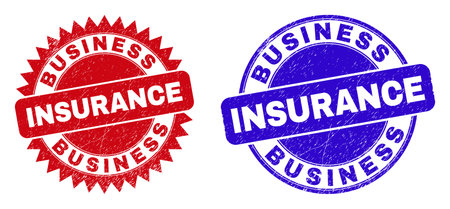Understanding General Liability Insurance Basics
If you own a business in the US, having general liability insurance isn’t just a good idea—it’s often a necessity. This type of insurance protects your company from claims involving bodily injuries, property damage, and even advertising mistakes that could happen during everyday operations. In a country where lawsuits can be common and costly, general liability insurance offers peace of mind and financial protection. Before you start comparing providers, it’s important to know what this coverage includes and why it matters. General liability policies typically cover legal fees, medical expenses, and settlements if someone is injured on your property or if you accidentally damage someone else’s property while conducting business. It can also cover claims of libel, slander, or copyright infringement related to your advertising. For small businesses and family-owned companies alike, this coverage is essential to keeping your hard work protected against unexpected setbacks. Understanding these basics will help you make informed decisions when choosing the right insurance provider for your unique needs.
Assessing Your Business’s Unique Needs
Before you start comparing general liability insurance providers, it’s important to take a close look at your business and evaluate the specific coverage you need. Every business is different, and factors such as your company’s size, industry, and risk exposure will play a big role in determining the right policy for you. By understanding your business profile, you can ensure that you’re not over- or under-insured, which can save money and prevent future headaches.
Key Factors to Evaluate
Consider the following aspects when assessing your needs:
| Factor | Why It Matters |
|---|---|
| Business Size | Larger businesses may require higher coverage limits due to greater exposure and more employees. |
| Industry Type | Certain industries, like construction or food services, face higher risks and may need specialized coverage. |
| Location | Your state’s regulations and local risks (like weather or crime rates) could affect your insurance needs. |
| Client Requirements | Some clients or contracts may require you to carry specific minimum liability limits. |
| Claims History | If your business has a history of claims, insurers may recommend or require higher coverage. |
Understanding Risk Levels
The level of risk associated with your operations is another crucial factor. For example, a family-owned retail store may have fewer risks than a contracting business working on construction sites. Take time to honestly assess the likelihood and potential cost of property damage, bodily injury, or advertising injury claims arising from your business activities.
Practical Steps for Assessment
- Make a list of all daily operations and identify potential hazards.
- Review any previous claims or incidents for patterns.
- Consult with industry peers or trade associations to benchmark typical coverage needs.
Tip for Families in Business Together
If you run a family business, involve everyone in this assessment process. Different perspectives—especially from those working on the frontlines—can help uncover overlooked risks and ensure everyone is protected. Taking these steps now will make it much easier to choose the right insurance provider down the road.

3. Searching for Reputable Insurance Providers
When it comes to choosing the right general liability insurance provider in the US, finding a company you can trust is essential. One of the best ways to start your search is by asking for recommendations from other local business owners or members of your professional network. These firsthand experiences can help you identify providers that are known for their reliability and excellent customer service. In addition to word-of-mouth referrals, be sure to check online reviews on platforms like Google, Yelp, and the Better Business Bureau. Pay close attention to feedback about claim responsiveness, communication, and overall satisfaction. Dont hesitate to join local business groups or online forums where you can ask questions and learn from others’ experiences. By combining personal recommendations with thorough research online, youll be better equipped to create a shortlist of reputable insurance companies that fit your needs.
4. Comparing Coverage Options and Costs
When selecting a general liability insurance provider in the US, its essential to thoroughly compare coverage options and costs. Not all policies are created equal, and understanding the differences can help you find the best fit for your familys business or personal needs without unwanted surprises down the road.
Key Factors to Compare
Start by reviewing each providers policy details. Look closely at the types of incidents covered, such as bodily injury, property damage, or personal and advertising injury. Pay attention to any exclusions that could leave you unprotected in specific situations. Evaluating these elements side-by-side makes it easier to identify which plan offers the most comprehensive protection.
Coverage Limits and Deductibles
Next, examine the coverage limits and deductibles for each policy. The coverage limit is the maximum amount your insurer will pay for a claim, while the deductible is what you pay out of pocket before insurance kicks in. Striking a balance between affordable premiums, reasonable deductibles, and sufficient coverage limits is key to protecting your budget and peace of mind.
| Provider | Annual Premium | Coverage Limit | Deductible | Additional Fees |
|---|---|---|---|---|
| Provider A | $500 | $1,000,000 | $500 | None |
| Provider B | $750 | $2,000,000 | $1,000 | $50 Setup Fee |
| Provider C | $600 | $1,000,000 | $250 | None |
Avoiding Hidden Fees and Unexpected Costs
Always ask about any hidden fees or special conditions that may affect your total cost. Some providers charge processing fees or have penalties for early cancellation. Reviewing the fine print now helps avoid financial surprises later. By comparing policies with a clear focus on your budget and actual needs, you’ll be able to select a general liability insurance plan that supports your goals—whether youre protecting your home-based business or keeping family finances secure.
5. Evaluating Customer Service and Claims Process
When choosing the right general liability insurance provider in the US, it’s essential to pay close attention to each company’s customer service reputation and how smoothly they handle claims. Good coverage is important, but the real value of your policy often comes down to how well your provider supports you when you need help the most. Take some time to research online reviews, ratings, and testimonials from other business owners. Look for patterns—do customers mention quick responses, friendly agents, and clear communication? Are there frequent complaints about long wait times or denied claims?
It’s also a good idea to ask potential providers specific questions about their claims process. For example, find out if you can file a claim online or through a mobile app, how long it typically takes to resolve a claim, and whether you’ll have a dedicated representative guiding you through the process. In the US, many reputable insurers offer 24/7 support, which can be a lifesaver during an emergency.
Remember that strong customer service isn’t just about being polite—it’s about reliability, transparency, and making sure you feel supported every step of the way. By carefully evaluating this aspect before signing up, you’ll set your business up for smoother sailing if you ever need to use your insurance coverage.
6. Checking Licensing and Financial Stability
Before you commit to a general liability insurance provider, its essential to confirm that they are licensed to operate in your state. Each state has its own requirements and regulations for insurance companies, so working with a licensed provider ensures you have legal protection and recourse if any issues arise. You can typically verify a companys license through your states Department of Insurance website. In addition to licensing, take time to assess the financial stability of the insurer. Look for providers with high ratings from independent agencies such as A.M. Best, Standard & Poor’s, or Moody’s. A strong financial background means the company is more likely to handle claims efficiently and remain reliable in the long run. Choosing a financially stable and properly licensed insurer gives your business peace of mind, knowing that your coverage will be there when you need it most.


